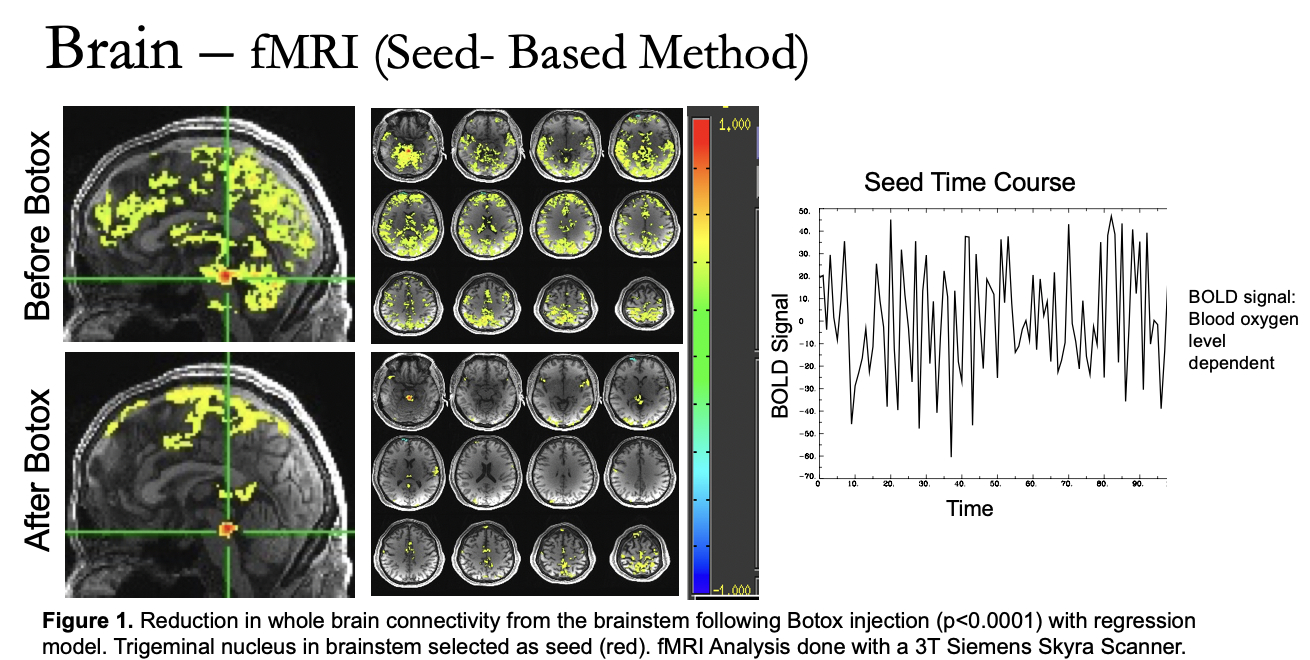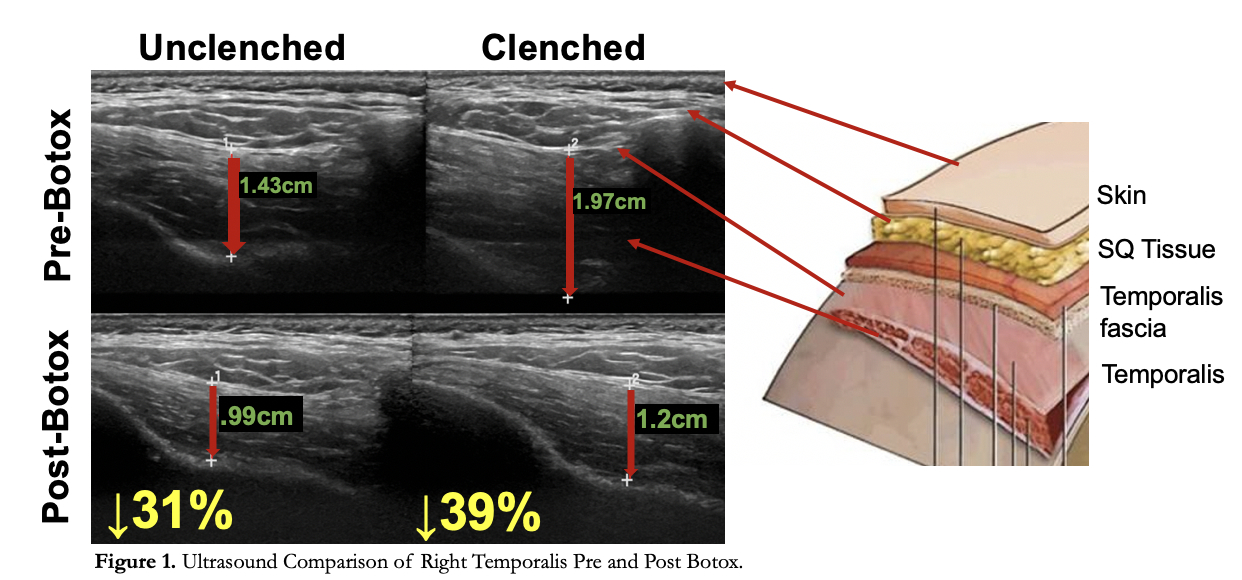IADR Abstract Archives
Efficacy of Botox in PTSD Patients Treated for Chronic TMD
Objectives: Temporomandibular disorder (TMD) and Post Traumatic Stress Disorder (PTSD), often present concomitantly and share negative synergistic relationships. Incobotulinum toxin (Botox) injections into the muscles of mastication is a standard treatment for chronic TMD pain and is effective in reducing myalgia, arthralgia, and as an added effect, reduces PTSD symptoms. The aims of this study are to further define the effect of Botox on muscles, pain, and use Botox as a tool to understand the neurological mechanisms underlying the connection between PTSD and chronic pain conditions such as TMD.
Methods: This study is double-blinded, randomized, and placebo-controlled with two clinical visits over six-week period. Both visits include a TMJ clinical assessment, an fMRI of the brain, an EMG and ultrasound of the muscles of mastication, and an EKG. At the first visit, patients are given three bilateral Botox or saline injections (100 cc total) into the masseter and two into the temporalis. Patients are also given a mobile application to monitor their levels of pain, stress, and sleep every day until the follow-up visit.
Results: Our results indicate Botox is effective in decreasing muscle contractility and thickness of Masseter, Temporalis, and Sternocleidomastoid. Patients who received Botox report decrease in psychiatric correlates with improved sleep quality, reduced anxiety, and overall better quality of life. fMRI analysis shows Botox may decrease pain afferent input transmitted to the trigeminal nucleus in the brainstem and may decrease connectivity from the brainstem to higher regions of the brain.
Conclusions: We observe expected effects of Botox injections on muscle activity, pain, and we are furthering our understanding on how reducing afferent input into trigeminal nucleus results in corresponding decrease in connectivity in brain stem and higher brain regions. As we collect more data, we will correlate changes in functional connectivity with pain improvements in patients with PTSD and TMD.
Methods: This study is double-blinded, randomized, and placebo-controlled with two clinical visits over six-week period. Both visits include a TMJ clinical assessment, an fMRI of the brain, an EMG and ultrasound of the muscles of mastication, and an EKG. At the first visit, patients are given three bilateral Botox or saline injections (100 cc total) into the masseter and two into the temporalis. Patients are also given a mobile application to monitor their levels of pain, stress, and sleep every day until the follow-up visit.
Results: Our results indicate Botox is effective in decreasing muscle contractility and thickness of Masseter, Temporalis, and Sternocleidomastoid. Patients who received Botox report decrease in psychiatric correlates with improved sleep quality, reduced anxiety, and overall better quality of life. fMRI analysis shows Botox may decrease pain afferent input transmitted to the trigeminal nucleus in the brainstem and may decrease connectivity from the brainstem to higher regions of the brain.
Conclusions: We observe expected effects of Botox injections on muscle activity, pain, and we are furthering our understanding on how reducing afferent input into trigeminal nucleus results in corresponding decrease in connectivity in brain stem and higher brain regions. As we collect more data, we will correlate changes in functional connectivity with pain improvements in patients with PTSD and TMD.


